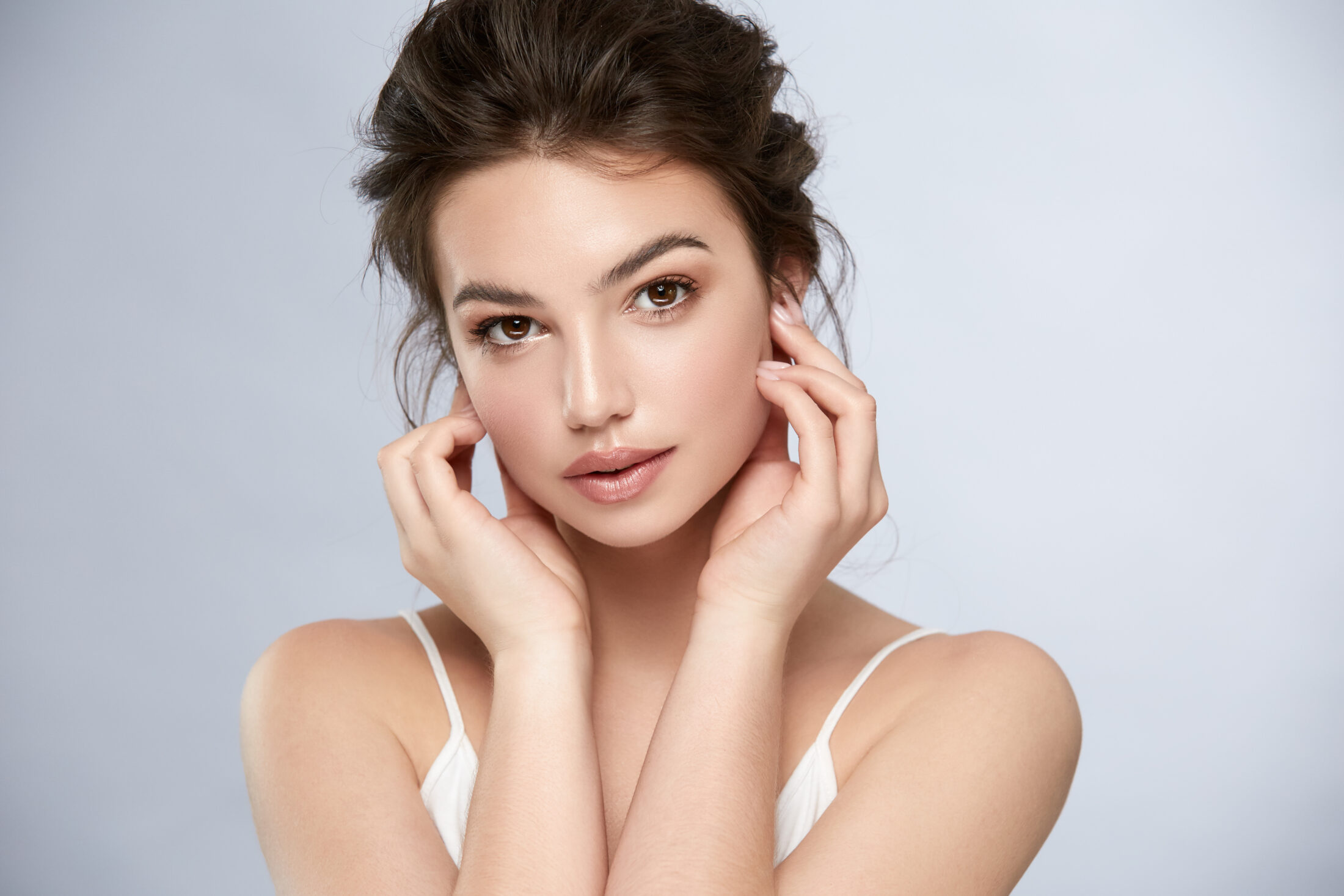
Unleash Confidence Through Psoriasis Relief!
Who Psoriasis Affects
Psoriasis can affect anyone of any age, though it is most common to develop this condition between the ages of 20 and 30, as well as ages 50 to 60. Men and women are affected equally, but non-Hispanic whites are the most common ethnicity impacted. While psoriasis won’t improve with age, it also does not worsen with age either. Age itself doesn’t affect the severity of psoriasis. However, as the skin ages, it produces less collagen and elastin, which keep skin strong and resilient. This can result in psoriasis appearing more severe with increased pain and bleeding.
Certain factors can increase one’s risk of developing psoriasis, including:
- Weakened immune systems from underlying health conditions, such as HIV
- Living in cold and dry climates, such as the Chicagoland area
- Higher levels of environmental pollution
- Lifestyle choices such as smoking and heavy alcohol consumption
- Frequent situations of high stress, such as those with high-pressure jobs or who have experienced significant emotional turmoil

Before & After Photos
Explore our before and after gallery to witness the remarkable transformations that have left our clients feeling more confident and beautiful than ever. From subtle enhancements to dramatic makeovers, our gallery showcases the artistry of transformation.
Types of Psoriasis
There are several types of psoriasis which affect different areas of the body, have different signs and symptoms, and may require different treatment.
- Plaque Psoriasis: The most common type, plaque psoriasis causes dry, itchy, and raised skin patches, or plaques, topped with scales. These usually appear on the elbows, knees, scalp, or lower back.
- Nail Psoriasis: This type of psoriasis specifically affects the fingernails and toenails, causing pitting, abnormal growth, and discoloration.
- Guttate Psoriasis: Guttate psoriasis is triggered by bacterial infections, such as strep throat, mainly affecting young adults and children. Signs of this type appear as small, drop-shaped scaling spots on the trunk, arms, or legs.
- Inverse Psoriasis: Affecting mainly skin folds of the groin, buttocks, and breasts, inverse psoriasis appears as inflamed smooth skin that worsens with friction and sweating.
- Pustular Psoriasis: This rare type of psoriasis causes pus-filled blisters either in large areas or on the palms and soles of the feet.
- Erythrodermic Psoriasis: This is the least common type of psoriasis, which causes a peeling, itchy rash and a burning sensation on the body.
Psoriasis Symptoms
Not all individuals with psoriasis experience the same symptoms. Visible indicators vary based on the type and severity of their condition and may include:
- Pink spots with a silver, scaly look – often on the elbows and knees
- Flaky, angry spots over the scalp
- Raised, red, inflamed skin lesions
- Pitted nails or separation from the nail bed
- Soreness, burning, or Itching of the skin
- Dry skin, which may crack or bleed, particularly if the hands or feet are affected
- Small, red spots spread out over the body (a form more common in children and young adults)
- Pink patches in the skin folds or genitals
Best Psoriasis Treatments in Naperville, Hinsdale and Burr Ridge, IL
1. Topical Treatments for Mild to Moderate Psoriasis Cases
Topical treatments are the first line of treatment for mild cases of psoriasis. These medications are applied directly to the skin and help to reduce inflammation, slow down skin cell production, and relieve itching, redness, and flaking. Common topical treatments include:- Topical Corticosteroids: These medications are most frequently prescribed for psoriasis. Corticosteroids reduce inflammation, swelling, and redness. When used consistently for longer than 3 weeks, corticosteroids can cause side effects such as skin thinning, easier bruising, and color changes.
- Calcineurin Inhibitors: These reduce inflammation and itchiness for plaque psoriasis on sensitive areas like the face and genitals and inverse psoriasis on the face, groin, skin under the breasts, and underarms. Possible side effects include burning and itching where the medication is applied but lasts short-term.
- Vitamin D Derivatives: Vitamin D deficiencies are linked to psoriasis. Taking vitamin D derivatives helps manage psoriasis by slowing down skin cell production, reducing inflammation, and can reduce its severity.
- Coal Tar Preparations: Patients have been using coal tar for more than 100 years to treat psoriasis. Coal tar can safely be used long-term and can be purchased as shampoos, ointments, foams, and as a bath solution. It can reduce swelling, itchiness, redness, redness, and scale of psoriasis.
- Salicylic Acid: This medication is a common and effective treatment for psoriasis that causes the outer layer of skin to shed, thus removing scales and softening the skin. It is generally safe and gentle for most skin types and can be purchased as lotions, creams, foams, gels, soaps, shampoos, liquids, cloth pads, and patches.
- Moisturizers: Though not technically considered a treatment, keeping the skin well-moisturized is vital to manage psoriasis symptoms. Thick creams and ointments help prevent the skin from drying out.
2. Phototherapy for Moderate to Severe Psoriasis
When topical treatments aren’t doing the trick, phototherapy, or light therapy, may be the next recommended step. This treatment exposes the skin to ultraviolet light which reduces skin cell growth and inflammation. The most common types of phototherapy include:- Narrowband UVB Therapy: Ultraviolet light B (UVB) treatment can be used for localized areas, such as the hands and feet, the whole body, or in hand-held units. It is typically used for patients with moderate psoriasis and can be very effective after several treatments.
- Excimer Laser: This FDA-approved treatment effectively treats chronic, localized plaque psoriasis by emitting a high-intensity beam of ultraviolet light B (UVB). This treatment is particularly effective on scalp psoriasis.
- PUVA: When light-sensitizing agents called psoralens are combined with ultraviolet light A (UVA), you get PUVA. PUVA works best on stable plaque psoriasis, guttate psoriasis, and psoriasis of the palms and soles of the feet. This treatment is typically reserved for more severe cases of psoriasis as there is an increased risk of side effects such as burning and skin damage.
3. Prescription Medications for Severe Psoriasis
With moderate to severe psoriasis, or where the joints have been damaged (psoriatic arthritis), first-line treatments are not practical. If topical treatments and phototherapy are not effective, it may be time for prescription systemic medications, which affect the entire body and are taken orally or through injection. Some examples of prescription systemic medications include:- Methotrexate: Methotrexate works by suppressing the immune system and reducing inflammation. It is mainly used for severe, erythrodermic, and nail psoriasis, as well as psoriatic arthritis.
- Cyclosporine: This medication also suppresses the immune system and is often used for severe or disabling psoriasis. Once the psoriasis is controlled, your provider may switch you to another treatment.
- Acitretin: Acitretin does not suppress the immune system, so it is often used for patients with other conditions that weaken the immune system, such as HIV. This medication can effectively treat guttate, plaque, pustular, and erythrodermic psoriasis.
- Biologics: Biologics are a newer breakthrough medication specifically targeting the part of the immune system that is overactive because of psoriasis. This protects the other organs, such as the liver and kidneys, that process and remove other medications from the body. Biologics can be life-altering for some patients and make nearly all psoriasis areas dormant. Common biologics include:
- Humira
- Enbrel
- Stelara
- Tremfya
- Cosentyx
- Otezla
Cost of Psoriasis Treatments
The cost of psoriasis treatments varies widely depending on the severity of the condition, where the psoriasis is located, and the type of treatment prescribed. Over-the-counter topical treatments are relatively inexpensive compared to more advanced treatments like biologics and phototherapy. Some treatments may also be covered by insurance. Contact us at Burt and Will Plastic Surgery & Dermatology today for a consultation and customized treatment plan.
